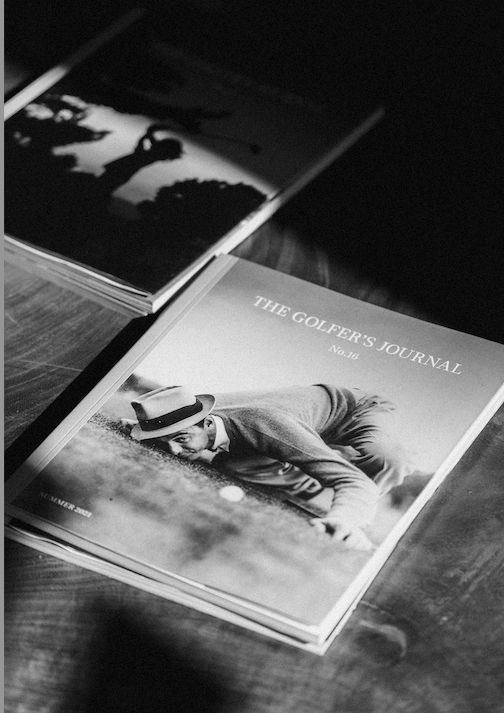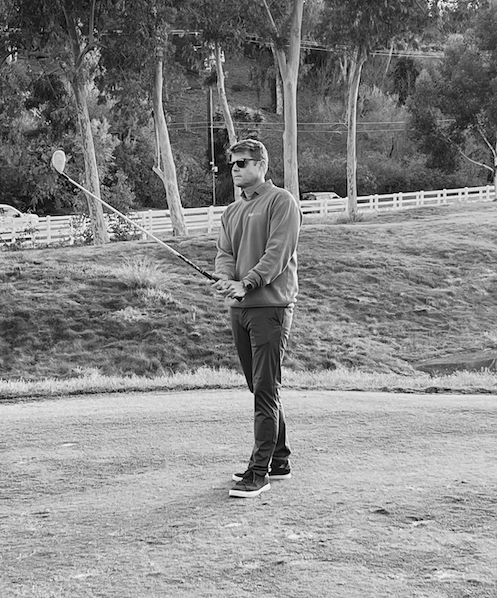Founder Files
2-8-2-23
Failure, Acceptance, and the Beauty of the Unknown
You’re a golfer. I’m not 100% sure but if you’re reading this, you’re probably a golfer. But why? Not, why are you reading this.. Why are you a golfer?
You love the outdoors, the camaraderie, the technical stuff, the exercise, the competitiveness, the self-mastery… You can pick any or all of these and you still won’t be at the core of why you golf.
You have encountered the unknown every time you’ve played golf.
Every shot you hit embodies the unknown.
You have a target, you choose a club, you intend a shot, you swing - - - - what happened? Maybe it did exactly what you pictured. More likely it was nothing like what you pictured. As the best golfers often say, you might hit 1 or 2 shots per round that actually do exactly what you intend.
If the average golfer hits over 100 shots per round and the success rate is 1-2… That’s pretty low. Like, extremely low. If you were in a job interview and HR asked what your success rate would be working at the new company and you said about 1-2%, I don’t think you’d get hired. So it begs the question, why do we choose to do something that has a built-in 98-99% failure rate?
The answer is the opposite of the thing we all think we want.
Consistency. That’s the word I hear students use when talking about what they desire in golf. “I just want to be more consistent.” “I hit a great shot and the very next swing I lose it.” Common. So common. If you want to get a golfer’s attention, just tell them you know some “keys for consistency”.
But that’s what we think we want. We actually really want the thing we already have. And if we ever lost it, the game would lose its enjoyment.
The most valuable thing we get from golf is the opportunity to experience greatness. We intend a shot and if everything happens to go right, we will experience greatness. But that greatness only shows up 1-2 times out of 100. And that is why we are golfers.
It’s such a cliche, “if golf was easy, it wouldn’t be fun”. But man is it true. The more you can predict the outcome, the less exciting it is.
Think about a slot machine. Why is it so addictive? Because you don’t know when - you know you might, and you even know it will definitely happen at some point - but you don’t know when you will hit the payout. The longer you can go without hitting the jackpot, the more the anticipation builds. And man does that anticipation feel good. Knowing that a good thing is coming soon…
The feeling of anticipation involves dopamine, serotonin, norepinephrine, cortisol, and endorphins! That’s everything! Want to create an addiction? Just mix all that up and hand it to the limbic system and you’ll have the makings of a full-blown obsession.
When you hear the term “golf addict”, it’s way more true than you may have thought.
Great. So now you know why golfers are addicts. They see the opportunity of greatness. They basically never get it but they know it might happen and because golf requires so many attempts, they usually get to relish in at least one success. But the title of this little paper is Failure, Acceptance, and the Beauty of the Unknown. So how does this all fit in?
Golf IS the unknown. It is the perfect amount of failure and the perfect amount of success. And once you understand it, you can accept every single bad shot, knowing that it is one step closer to a success.
Intend a shot, attempt a shot. Over and over. Put in a quarter, pull the handle. Eventually - and not always when you need or expect it - you’ll hit the jackpot.
Book a tee time. It’s a safer habit than playing the slots :)
Happy Golfing
Sam




Leave a comment
This site is protected by hCaptcha and the hCaptcha Privacy Policy and Terms of Service apply.